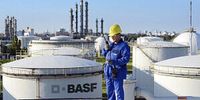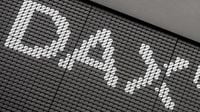On March 21, 2025, BASF's stock price faced significant declines amidst broader market ebb. The chemical giant's shares fell by 1.44% during the trading day, closing at 49.99 EUR, marking a stark contrast from its recent high.
Earlier in the month, specifically on March 6, 2025, BASF's stock had achieved its highest closing price in the last twelve months, recording 55.06 EUR. Unfortunately, the stock has since struggled to maintain that momentum, with today's performance placing it significantly lower than that peak. Following the downward trend, the DAX, the German stock index, also reported a decline of 1.01%. At the time of this report, the DAX was positioned at 22,767 points.
The recent performance of BASF shares is indicative of a wider struggle within the stock market. Just hours later, the stock showed a further decrease of 1.1%, resulting in a price of 50.17 EUR in XETRA trading, slightly recovering from its earlier low of 49.58 EUR. This was during a day when BASF was one of the notable stock losers in the DAX 40, which stood at 22,831 points at that time.
In light of recent fluctuations, it’s worth noting that BASF's stock has undergone a significant evolution over the years. The stock's historical low was recorded on March 29, 1995, at just 7.09 EUR, a stark reminder of the volatility that can characterize stock prices.
The company’s recent dividend history adds to the narrative of its financial performance. In 2023, BASF distributed a dividend of 3.40 EUR per share, but forecasts for the current year indicate a drop to 2.32 EUR. The recent downward revisions reflect broader market concerns and the company's specific challenges.
Furthermore, BASF recently released its financial results for the fourth quarter of 2024 on February 28, 2025. The company reported a loss of 0.88 EUR per share, better than the previous year’s loss of 1.78 EUR per share. However, the revenue for the quarter was 15.86 billion EUR, a slight decrease compared to 15.87 billion EUR from the same period last year, indicating a modest decline in sales.
Looking forward, analysts predict that BASF will report earnings of 3.44 EUR per share for the year 2025. The Q1 2025 results are anticipated on May 2, 2025, while projections for the Q1 2026 results are set for April 23, 2026.
As market analysts weigh BASF's performance, it is crucial to consider the context of its competitive landscape. The company holds a market capitalization of approximately 44.7 billion EUR. Compared to its peers like Bayer, which sits at 23.5 billion EUR, and Dupont De Nemours at 29.5 billion EUR, BASF is in a relatively strong position despite current setbacks.
In terms of market stratification, BASF recently ranked 16th in the DAX based on stock market capitalization, controlling about 2.17% of the index. This is particularly notable considering that SAP, the market leader within the DAX, boasts an impressive market cap of 291.82 billion EUR.
The continuing fluctuations in BASF's stock reflect a mix of internal corporate challenges alongside broader economic conditions impacting the DAX. The emerging volatility raises questions among investors about the company's prospective performance and the factors driving these stock movements.
In conclusion, BASF's recent stock performance, while indicative of short-term challenges, highlights the complex landscape within which the company operates. Market responses vary, and investors will be keenly watching as the business navigates its financial indicators and position in the competitive market landscape.




